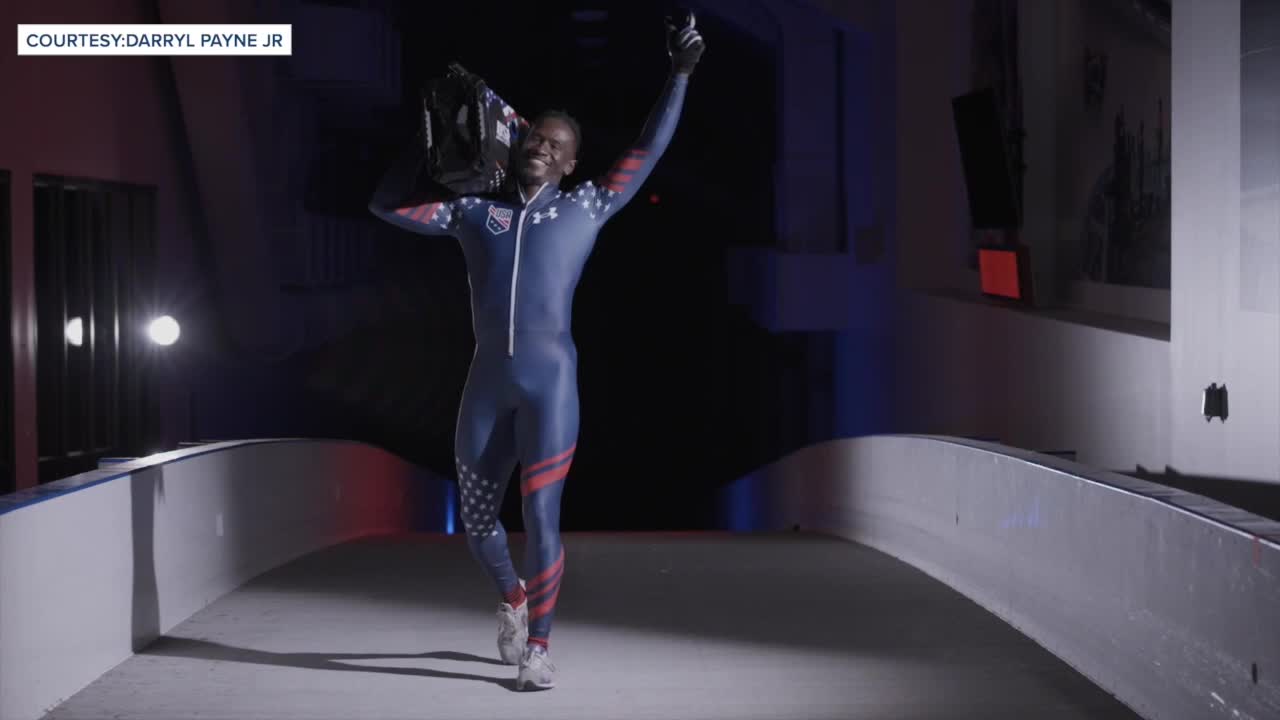LAFAYETTE PARISH — Darryl Payne Jr. built his life around speed. Growing up in a neighborhood where sports were a constant, he excelled in track at Lafayette High, set a school record in the 300-meter hurdles, and later competed at Baylor University. His athletic drive began long before that—sparked by watching the 2008 Olympics as a kid, where he says his dream took shape. “It really inspired me to take this gift of athleticism that I got from God and see if I can take it all the way to its limit,” he said.
After college, Payne believed track might carry him to the Olympics, but he realized how difficult it was to keep pace with professional runners. He considered shifting gears entirely. “I just kinda had to make up my mind. I'll come back to school and go to medical school and be a doctor,” he said.
That path changed in 2017 when the U.S. Olympic Committee invited him to a crossover scouting camp for athletes who could transition into winter sports. Payne tried out for bobsled, performed well, and seemed close to a second chance at the dream he had once let go. But coaches told him he was too small for bobsled. “I’d already given up the Olympic dream at that point and then for me to have the second chance by me becoming a bobsledder—to have that taken away from me it was also heartbreaking,” he said.
Instead of giving up, Payne redirected his skills to a sport few people in Louisiana have ever encountered: skeleton. In the sport, athletes sprint, dive face-first on a small sled, and fly down an ice track at 80 miles an hour with no brakes.
Payne now races internationally, earning ranking points throughout the season. Only the top two American athletes make Team USA. He currently sits in fourth place with until January to climb two spots. If he succeeds, Payne could become the first Black man to compete for the United States in Olympic skeleton — though he would follow a precedent set by a Black woman, Kelly Curtis, who made history when she became the first Black athlete to represent Team USA in skeleton at the 2022 Winter Olympics.
Though he lives in Texas now, Payne credits his Louisiana upbringing for the discipline that keeps him pushing. Where many see winter sports as out of reach, “I started realizing that there's nobody that looks like me sliding in this sport,” he said. “My goal has become to inspire Black youth to look beyond summer sports and look into winter sports.” He believes representation matters — not just for himself, but for every kid who’s never considered a sled and an ice track a possible path. “I think it's super important just to have the representation in the Olympics,” he said.
And even with an uphill climb ahead of him, Payne says he won’t stop pursuing the dream that began on a TV screen in 2008. “You can't just give up, you try you try and if you fail, you try again.”





